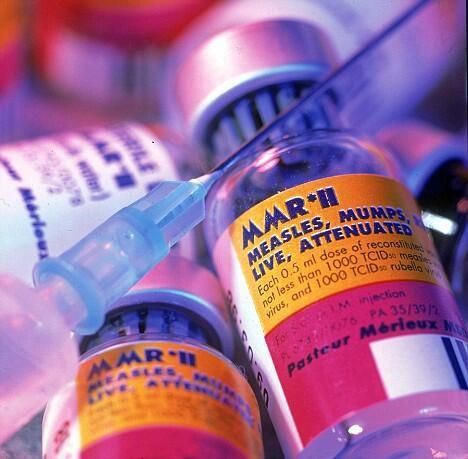Measles Outbreak 2013: US Officials Worry That Surge In Cases Could Have Deadly Impact On Unvaccinated

The U.S. Centers for Disease Control and Prevention (CDC) reported today that there have been at least eight measles outbreaks in the United States this year — a number that will likely rise. There have been 159 confirmed cases of measles in the U.S. between Jan. 1 and Aug. 24.
"This is very bad. This is horrible," said Dr. Buddy Creech, a pediatric infectious disease expert at Vanderbilt University. "The complications of measles are not to be toyed with, and they're not altogether rare."
Federal health officials believe that if the trend continues as it is now, America will have more measles cases this year than it has since 1996. On average, about 60 people in the U.S. get measles each year, and they usually contract it while traveling overseas or by being in physical contact with someone who contracted the disease while traveling overseas. There has been a resurgence of the disease since it was “officially eliminated” in the U.S. in 2000.
"The increase in measles cases in the United States in 2013 serves as a reminder that imported measles cases can result in large outbreaks, particularly if introduced into areas with pockets of unvaccinated persons," researchers wrote.
While the measles, mumps, and rubella vaccination (MMR) is usually included in infant babies’ initial immunizations, some parents have been opting to avoid the vaccine altogether under the belief that it poses other, more serious risks. Eighty-two percent of this year’s cases involve patients who have not been vaccinated.
What Is Measles?
Measles, also known as rubella, is a respiratory virus that grows and spreads in the cells of the throat and lungs. Symptoms begin to manifest anywhere between seven and 14 days after initial exposure to the virus. Symptoms usually include a fever, dry cough, sore throat, tiny white spots inside the mouth, and skin rash.
People with measles are contagious for about eight days. They can spread the virus four days before physical signs manifest and for four days while the rash is there. Complications from measles can range from bronchitis or pneumonia to encephalitis, which could be fatal.
"With measles, things can change very quickly," said Anne Schuchat, director of the National Center for Immunization and Respiratory Diseases. "We need to stay ahead of this virus."
Who Is At Risk?
Children are most vulnerable to contracting measles. Those with vitamin A deficiency are also very susceptible to developing the disease. In addition, those who travel internationally to countries where the disease is more common are also at risk.
Above all, though, those who are not vaccinated against measles are at highest risk for developing the disease.
"You can bring measles virus into an arena, and anyone who's not vaccinated in that arena who's never had measles is going to get that virus," said Schuchat.
Measles Vaccine And Autism
Many health professionals attribute the resurgence of measles to parents choosing not to vaccinate their children for the disease due to the possibility that the vaccination may cause autism. There is no scientifically proven link between the MMR vaccine and autism.
In 1998, Dr. Andrew Wakefield published a paper that claimed there was a link between MMR and autism. However, the American Academy of Pediatrics, the Institute of Medicine, and the CDC maintain that there is no proven association between the two.
However, despite mounds of evidence to the contrary, parents still question the safety of some vaccines, including MMR. The CDC recommends that children get two doses of the vaccine and urges parents to remember that measles can be serious.
“For every 1,000 children who get measles, one or two will die from the disease. In fact, worldwide, measles is still a significant cause of vaccine-preventable death among children,” the CDC says.
Published by Medicaldaily.com



























